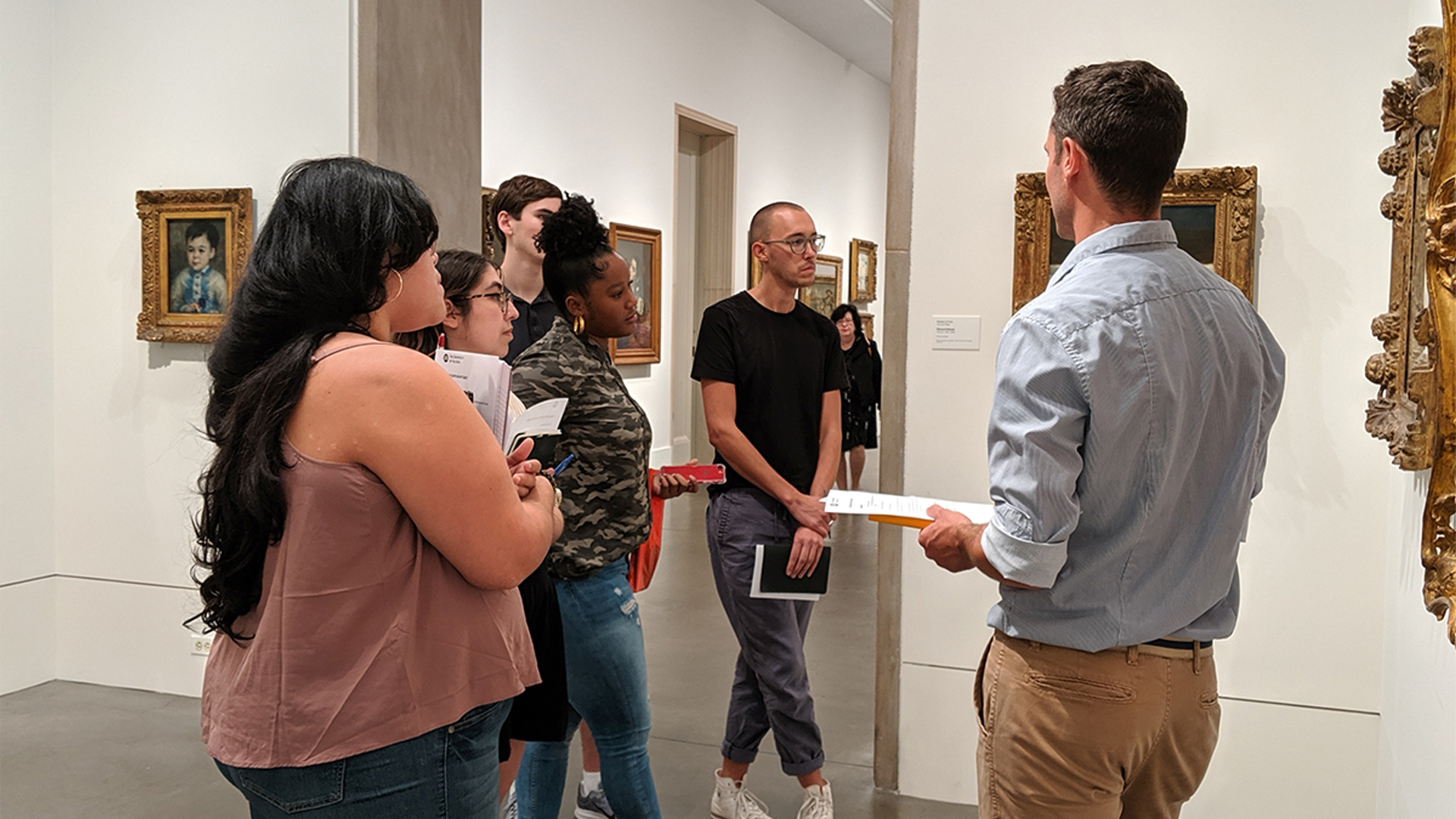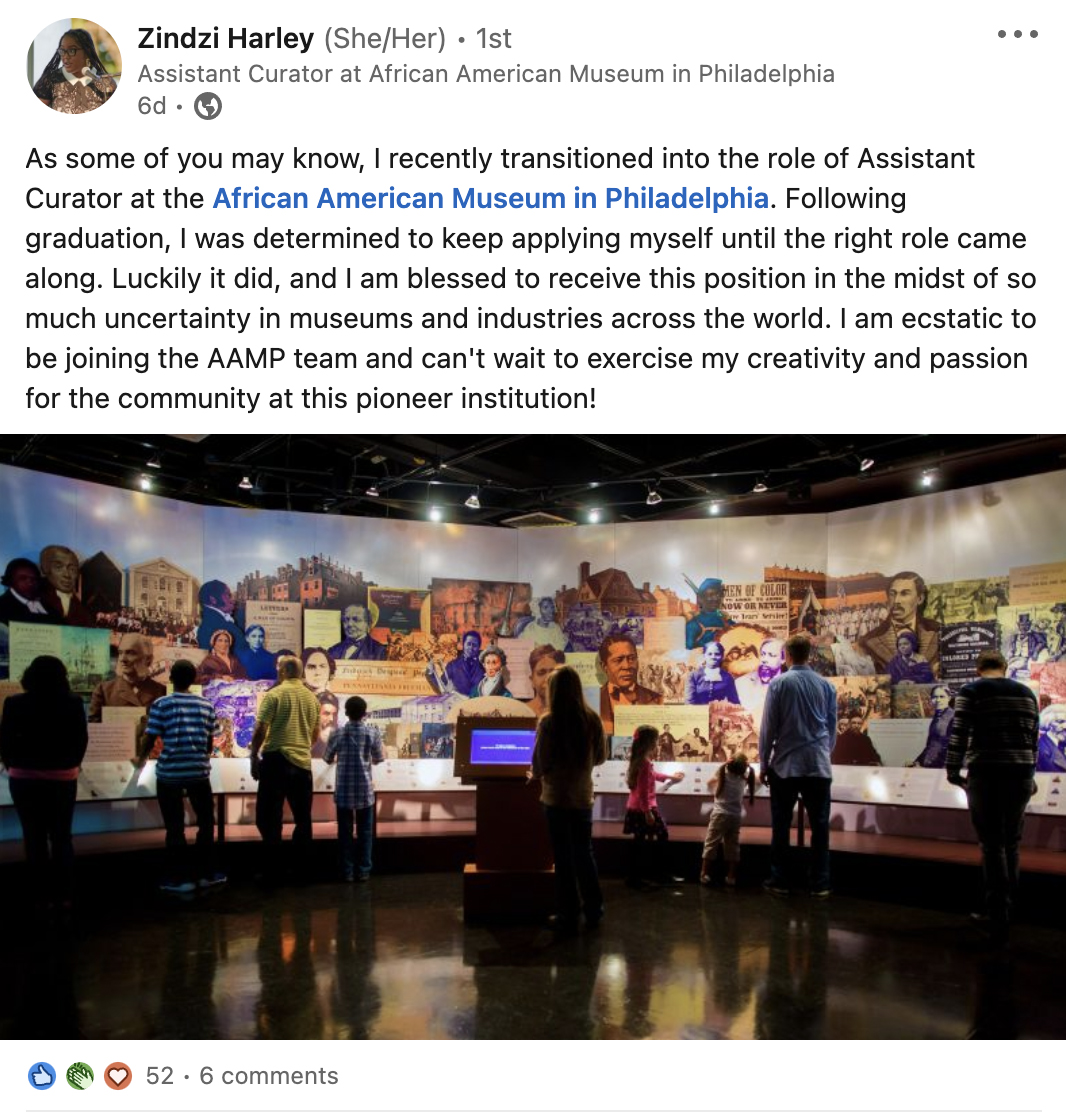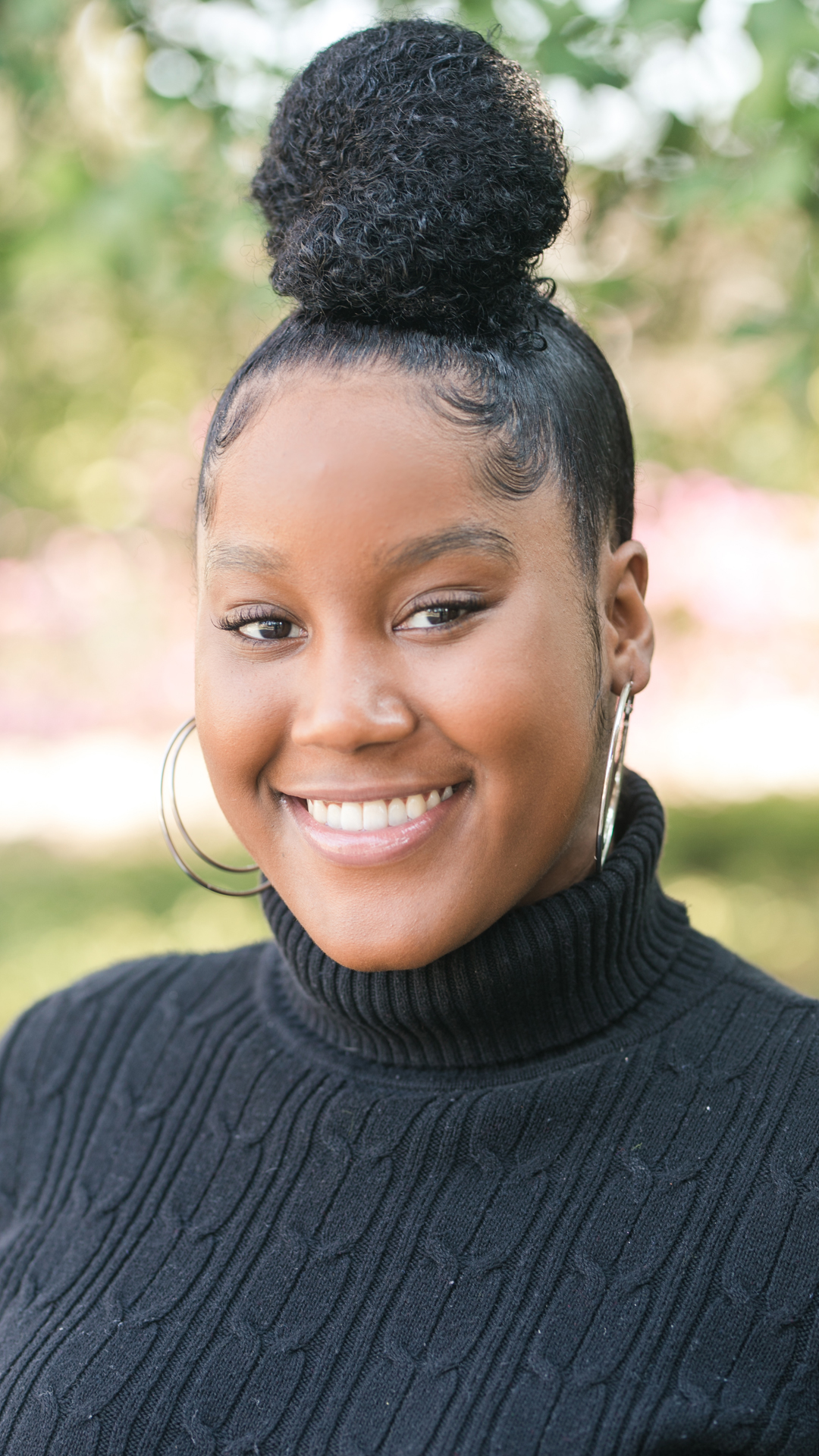
This Article first appeared on CFA News october 14, 2020 and has since been updated
In the summer of 2020, Harley participated remotely with Studio Museum Harlem in their first-ever Museum Professionals Seminar, a four-week intensive offered to a small cohort of promising students. Additionally, she curated her first project in Philadelphia, Distant Memory, a dual installation located in the historic textile capital, Fabric Row.
Zindzi enjoys contributing to various publications and recently authored an article for Magic & Melanin Magazine that discusses the importance the of decolonization in modern day museums. In her free time, Zindzi is not only a curator but social justice advocate and activist working to bring marginalized creative voices to the forefront. In her most recent campaign Volumn ON with Hollister Co., Zindzi sheds light on the ongoing pandemic of racial injustice in America while amplifying BIPOC voices.
The College of Fine Arts caught up with Zindzi to talk about the impact of her work in the fall of 2020. Since our interview, Zindzi has accepted the position of Assistant Curator at the African American Museum in Philadelphia.
CFA: Tell us about your recent participation in Studio Museum Harlem’s “Museum Professionals Seminar.”
Zindzi: My participation in the Studio Museum Harlem’s Museum Professionals Seminar was one of the highlights of my work in my graduate career. The seminar was in place of the summer internship program due to the restraints of COVID-19 and was an experimental initiative of the educational department head up by Dr. Ilk Yasha, Studio Museum Institute Coordinator.
The opportunity that the Studio Museum offered to the small but diverse cohort of students working across the United States as art laborers was not only empowering but enriching. I had never engaged with so many talented young Black professionals in the museum field especially coming from academia. This is simply due to the fact that representation is sparse in the fine arts and especially in institutionalized spaces such as museums, galleries etc.
The seminar allowed me to dive deeper in the Studio Museum Harlem’s conception, the adversities they faced, how they have continued to successfully serve African American communities and artists, as well as lead the fight for equity and inclusion of Black artistry in the national and global discourse. We explored these themes through bi-weekly Zoom meetings that addressed assigned readings, prompted candid conversation on contemporary practice in museums, and guest speaker series from different professionals in a variety of sectors in the Studio Museum including the most revered Director and Chief Curator, Thelma Golden.
CFA: The exhibition you co-curated, “Distant Memory” for Past Present Projects, is on view through Oct 30. Tell us about your experience curating this exhibition and how your activism work ties into your curation.
Curating Distant Memory was an experience that not only pushed me to rethink how one can engage with local histories but how to embrace the diverse voices of the many identities that exist within a community. Learning about Fabric Row and the craft culture that has persisted over the years was inspiring and motivated me to tell the story of this eclectic neighborhood through both artists, Emily Carris-Duncan and Colin Pezzano.
My activism work ties closely into my curation, especially on a public art exhibition like Distant Memory. I think of activism as advocating for social justice in all aspects of life. In a world where so many folks are marginalized including those who look like me, it is of the utmost importance to use curation as a tool to not only connect communities but shape a more inclusive word. In the midst of a multitude of pandemics including COVID-19 and systemic racism, Distant Memory challenged us to develop an exhibition that was social distance friendly, therapeutic, and reminiscent of the activism that got us through these tough moments in the past.
CFA: Your article “Musée de Mélanine” in the current issue of Melanin and Magic Magazine, addresses how cultural and artistic institutions in America have historically excluded Black artists and art - do you see your own work as a way to bring about that change?
I see all of my actions as a way to bring about change, predominantly through thoughtful curation. I understand curatorial work as my own personal artistic practice, bringing together a diverse range of experiences, practice, mediums, and emotions to tell a more whole and nuanced narrative that allows us to be curious about culture and humanity. Art has always been a means to express ourselves authentically. It is a space where we can reflect on our collective and individual identity. In times of uncertainty cultural production always skyrockets and right now we are seeing more creation than ever. I think we should all challenge ourselves to take part in this tradition of art whether as the artist or viewer. No matter what side of the composition you stand on you are taking part in an ongoing conversation that will expand our understanding of one another as human beings and hopefully create a more all-inclusive society.

CFA: Your work and your words are an inspiration, is there anything you'd like to leave for current students at UK who want to follow a similar path?
I hope that my words can impact students in all disciplines. However, as a woman of color I was often saddened to not see myself reflected in the high places that I dreamed of going. I want Black and Brown students to know that although the road is not always easy there is space for you, even if you have to make that space for yourself. Always believe in yourself and strive for the roles and opportunities you deserve because it is a privilege and blessing to be young, gifted and Black. We must continue to step into our excellence and only then will we be the catalyst for change that the world needs.
